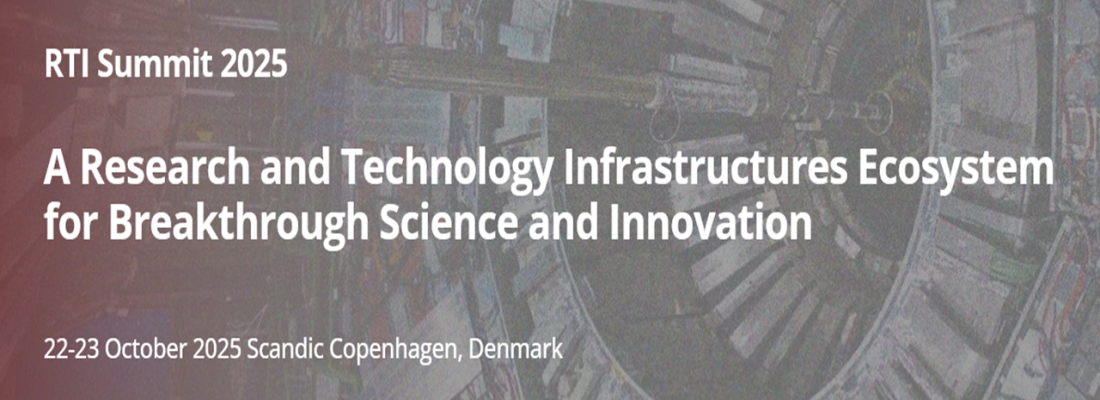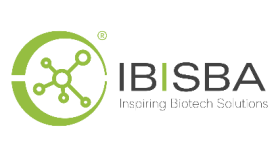22 23 October 2025 Status Ended
Copenhagen
2025 RTI Summit: INRAE showcases its research infrastructures
On October 22 and 23, 2025, in Copenhagen, the 2025 Research and Technology Infrastructure (RTI) Summit, held in the framework of the Danish Presidency of the Council of the European Union, will bring together European and international stakeholders involved in RTIs to discuss scientific innovations and innovation transfer towards industrial applications. INRAE is taking part in the event to showcase its research infrastructures serving both research and innovation.

Infrastructures for scientific excellence and innovation
INRAE is taking part in the 2025 RTI Summit to present its research infrastructures serving both research and innovation, with a focus on two flagship infrastructures in which it plays a major role:
IBISBA, dedicated to biotechnologies for the circular bioeconomy
PHENOME-EMPHASIS, dedicated to plant phenotyping and the agroecological transition.
INRAE’s stand will present IBISBA and PHENOME-EMPHASIS to illustrate how they help unify science, innovation, and industrial applications in France and Europe.
The stand will highlight
- the research-innovation continuum that INRAE develops from laboratories to industrial applications
- the ways in which French research infrastructure initiatives are being developed in close alignment with the European landscape
- collaborations with industrial and commercial players, which are effective drivers of innovation transfer and create value for society and the economy
Research infrastructures: a strategic INRAE asset in France and Europe
INRAE relies on a network of research infrastructures that significantly help advance data production and processing, as well as in training, innovation, and technology development. These infrastructures are open to the national and international scientific community, and they are unique in that their areas of focus range from the molecular scale to the ecosystem scale.
INRAE is involved in 17 French research infrastructures, of which it coordinates 8, and plays a participatory role in 8 infrastructures found on ESFRI’s European roadmap. The institute holds a coordinating role for IBISBA, which is dedicated to biotechnologies as a key driver of bioproduction.
These infrastructures support scientific excellence and innovation in six major strategic areas:
- food, nutrition, and health (including emerging diseases and zoonoses)
- phenotyping of plants and animals used in production systems
- high-throughput molecular analysis and bioinformatics
- biological and genetic resources
- ecosystem observation and experimentation as well as biotechnologies and processes for the environment and industry
Spotlight on IBISBA and PHENOME-EMPHASIS
IBISBA, a European infrastructure for innovation in biotechnology

IBISBA is a distributed European research infrastructure dedicated to biotechnology for the development and provision of industrial-scale bioprocesses, products and services. Its mission is to use its R&D activities to help build a sector that plays a pivotal role in the circular bioeconomy.
IBISBA brings together an interdisciplinary research community united by a common goal: advancing industrial biotechnology in Europe. From the life sciences to chemical and microbiological engineering, and from mathematical modelling to computer science, IBISBA offers wider access to national research facilities and services across Europe in order to support and drive the development of bioprocesses. Each research centre contributes its own expertise, forming the different links in the research and development value chain in the field of biotechnology.
IBISBA-FR: the French national node of IBISBA
IBISBA-FR is the French national node of IBISBA. Identified as a French National Biology and Health Infrastructure (INBS), it features on the Research Infrastructures Roadmap issued by the French Ministry of Higher Education and Research. IBISBA-FR brings together some twenty platforms located across seven sites.
While Europe boasts a wide array of public research infrastructures and recognised expertise in scaling up technologies, research in biotechnology remains fragmented and insufficiently coordinated. In this context, IBISBA plays a key role. As a European research infrastructure dedicated to industrial biotechnology, it facilitates knowledge sharing, strengthens collaboration and accelerates research and development
Through harmonised procedures and a common reference framework, IBISBA makes cooperation between public research and industry easier. It provides a single entry point for interoperable R&D services that meet the needs of both scientists and industrial stakeholders. Its services cover a broad range of topics, from biological engineering to catalyst optimisation, with tangible applications in bioenergy, chemistry, agrifood, health and the environment.
To achieve these objectives, IBISBA relies on:
- a distributed network of academic and industrial partners across Europe
- cutting-edge technology platforms – including those hosted by INRAE in Narbonne, Toulouse, Marseille and Jouy-en-Josas
- pre-industrial demonstrators such as Toulouse White Biotechnology (TWB) and Ferments du Futur
- a network of academic and industrial partners in France and across Europe
PHENOME-EMPHASIS-France, a national plant phenotyping infrastructure

PHENOME-EMPHASIS-France represents the French community within the European infrastructure EMPHASIS - Plant Phenotyping. It develops and provides a set of digital plant-phenotyping platforms under greenhouse and field conditions, together with complementary services for tissue biochemistry, image analysis and data management.
Its experimental facilities enable multi-scale evaluation of collections of genotypes under different crop-management conditions, supporting resilience to climate change and the agroecological transition.
Labelled as a National Infrastructure in Biology and Health (INBS), listed on the French national roadmap for research infrastructures since 2016, and funded under France’s Investments for the Future programme (PIA) until 2025, PHENOME-EMPHASIS is also part of the Innov’Alliance, Végépolys Vallée and Vitagora competitiveness clusters. Through its platforms and expertise, it acts as a key lever for climate resilience and the agroecological transition.
In France, PHENOME-EMPHASIS-France provides a renowned distributed infrastructure for the study of collections of plant genotypes under precisely controlled climatic scenarios (drought, elevated CO₂, heat, etc.) and crop-management practices (low-input systems, biotic interactions, mixed cropping). These facilities contribute to strengthening the resilience of agriculture to climate disruption and to accelerating agroecological transitions.
The infrastructure gives access to controlled-environment platforms (greenhouses and growth chambers), semi-controlled environments (rainout shelters) and fully instrumented field sites equipped with advanced imaging tools, as well as omics analysis services.
The platforms are operated by one or more of four partners: INRAE (the French National Research Institute for Agriculture, Food and Environment), ARVALIS (technical institute for field crops), Terres Inovia (for oilseed and protein crops) and GEVES (the French Variety and Seed Study and Control Group). The platforms, together with biochemical and digital services, are open to both internal and external users.
INRAE's contribution to Europe’s infrastructure vision
INRAE has played an active role in shaping the new European strategy on RTIs.
The institute is calling for a more holistic approach to these infrastructures, rejecting a dichotomous view of research and technology. The challenge is to support the research-innovation pipeline that funnels fundamental knowledge (low technology readiness levels [TRLs]) into industrial applications (high TRLs).
INRAE is advocating for the following priorities:
- securing long-term funding for strategic infrastructures
- supporting industrial catalysts, which are truly open innovation ecosystems that facilitate the transfer of discoveries to industry and that support the emergence of SMEs and start-ups
- better coordinating French and European initiatives, to limit redundancy and identify gaps
- managing and opening up the data produced by infrastructures, so as to improve compatibility with artificial intelligence and open science principles
- systematically integrating energy and environmental efficiency into infrastructure development and operations
Via its contributions, INRAE is helping advance the development of Europe’s future infrastructure strategy and defending a vision in which RTIs play an essential role in innovation, industrial competitiveness, and major ecological transitions.
